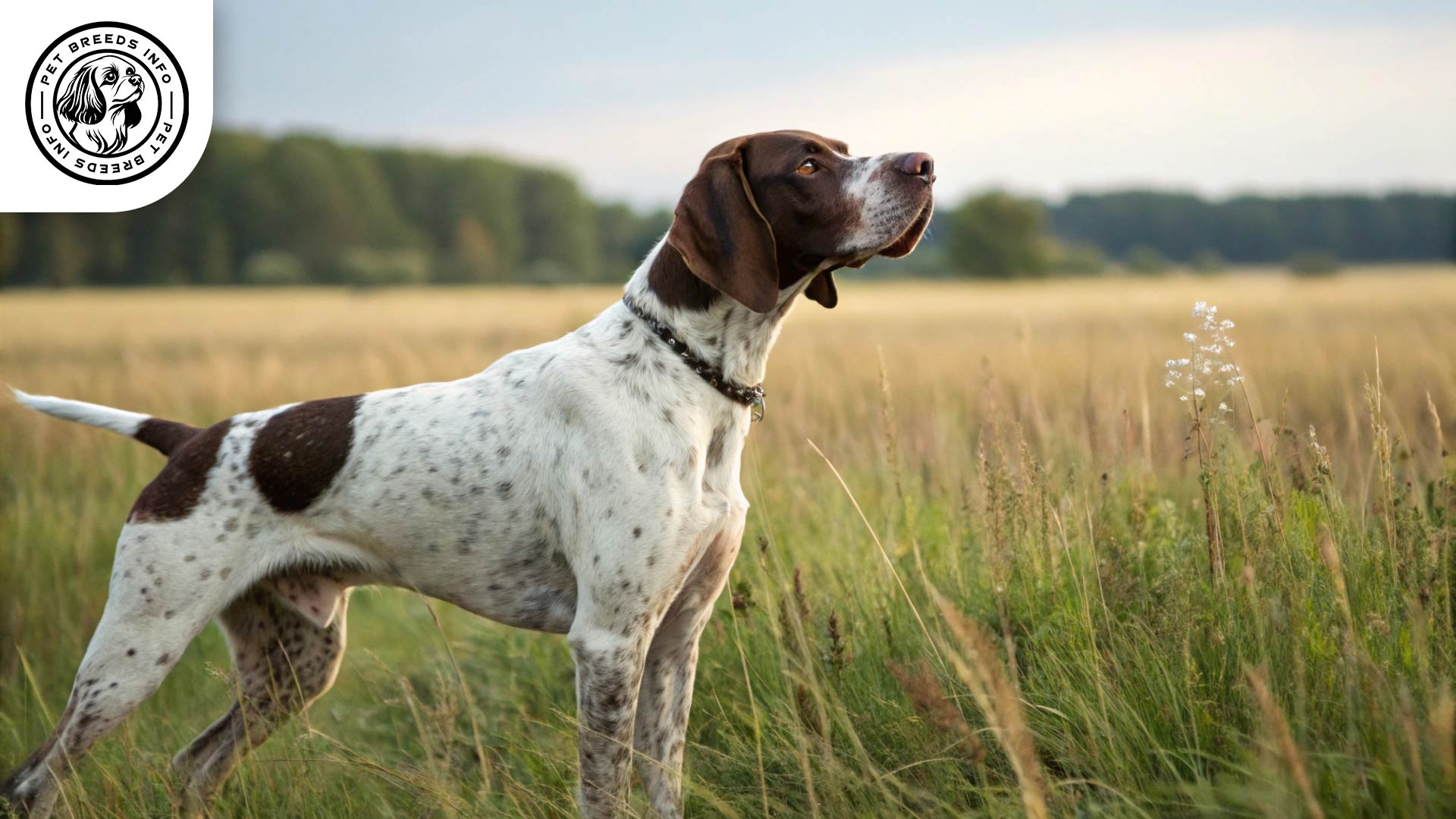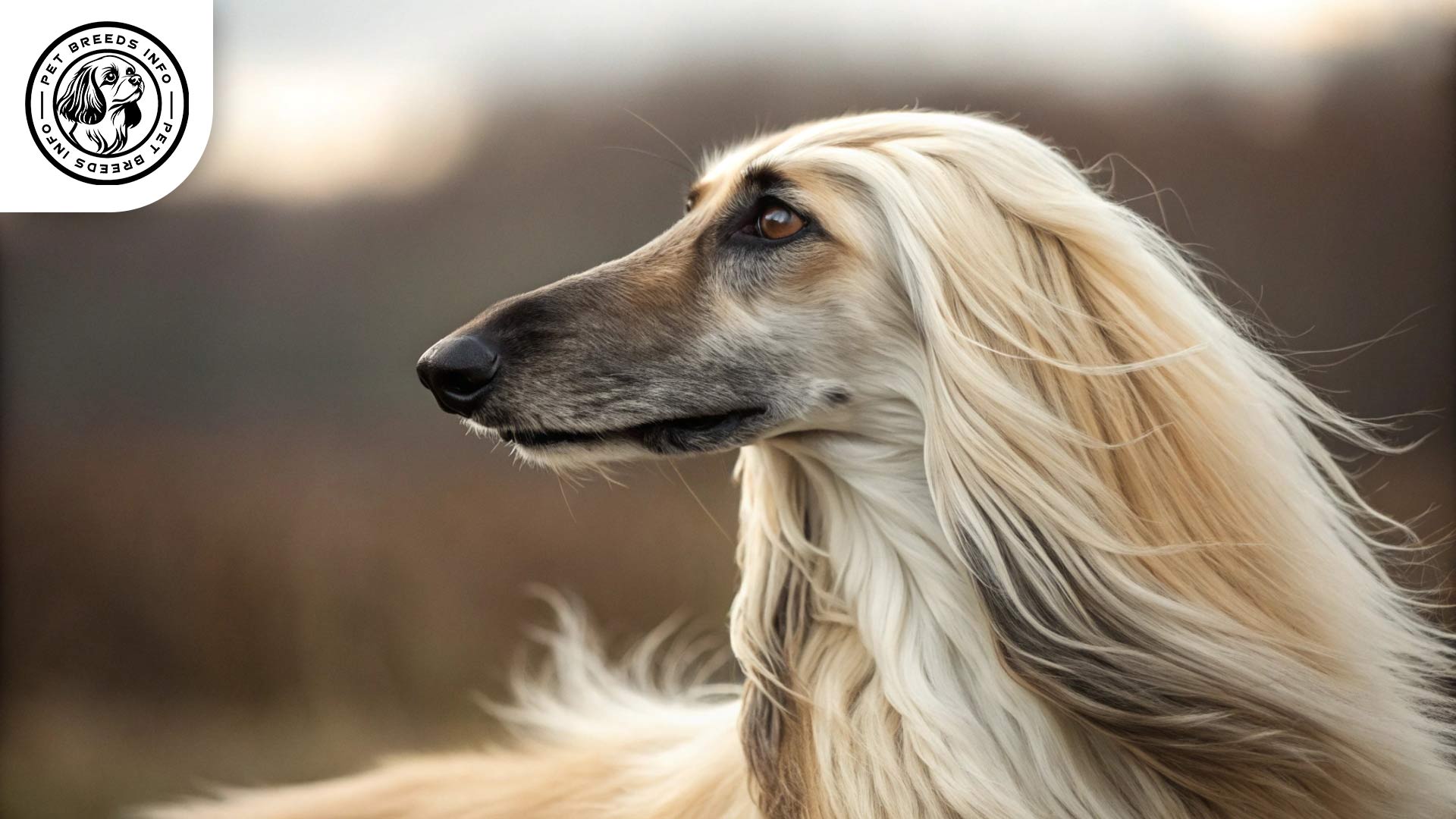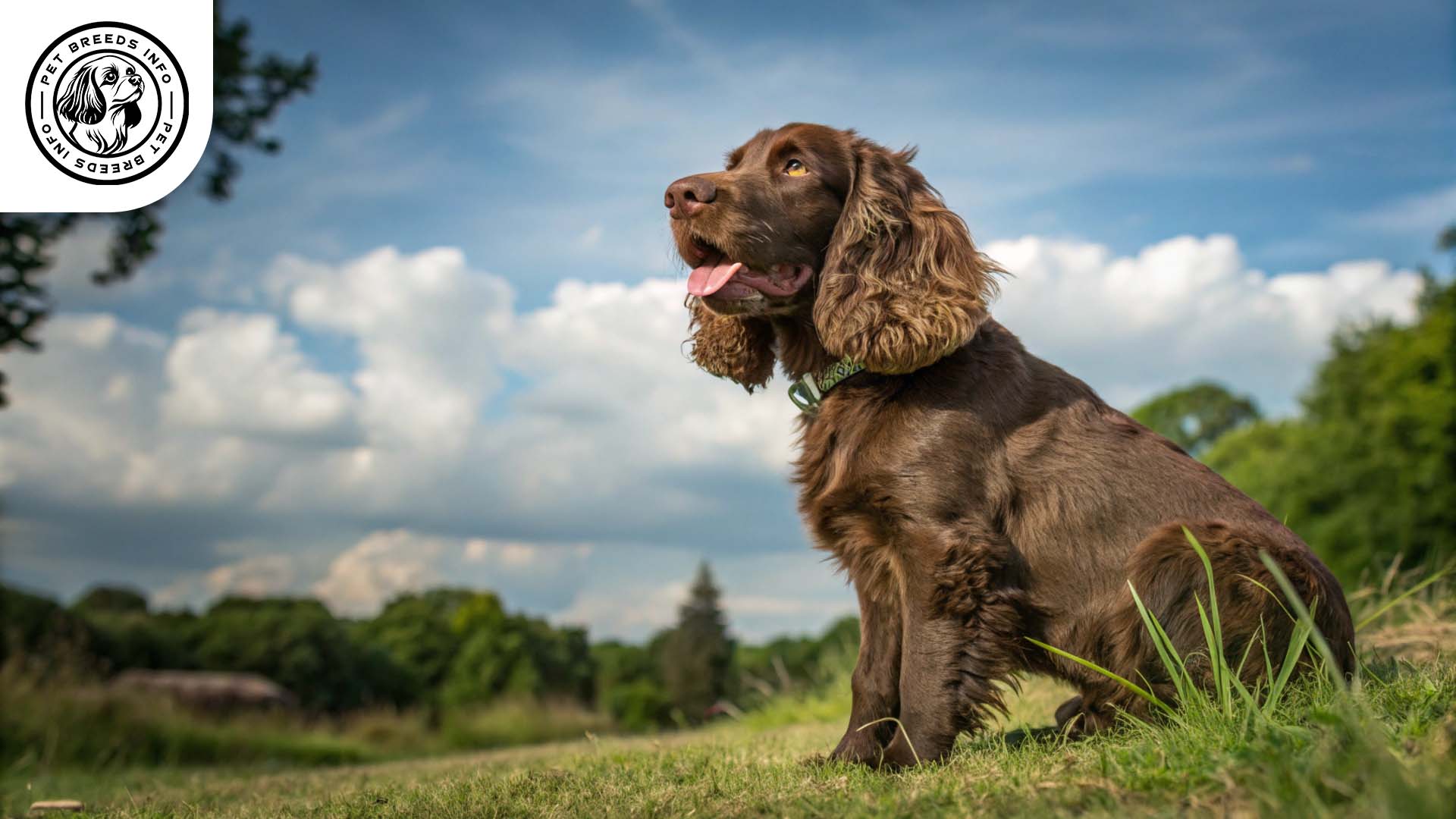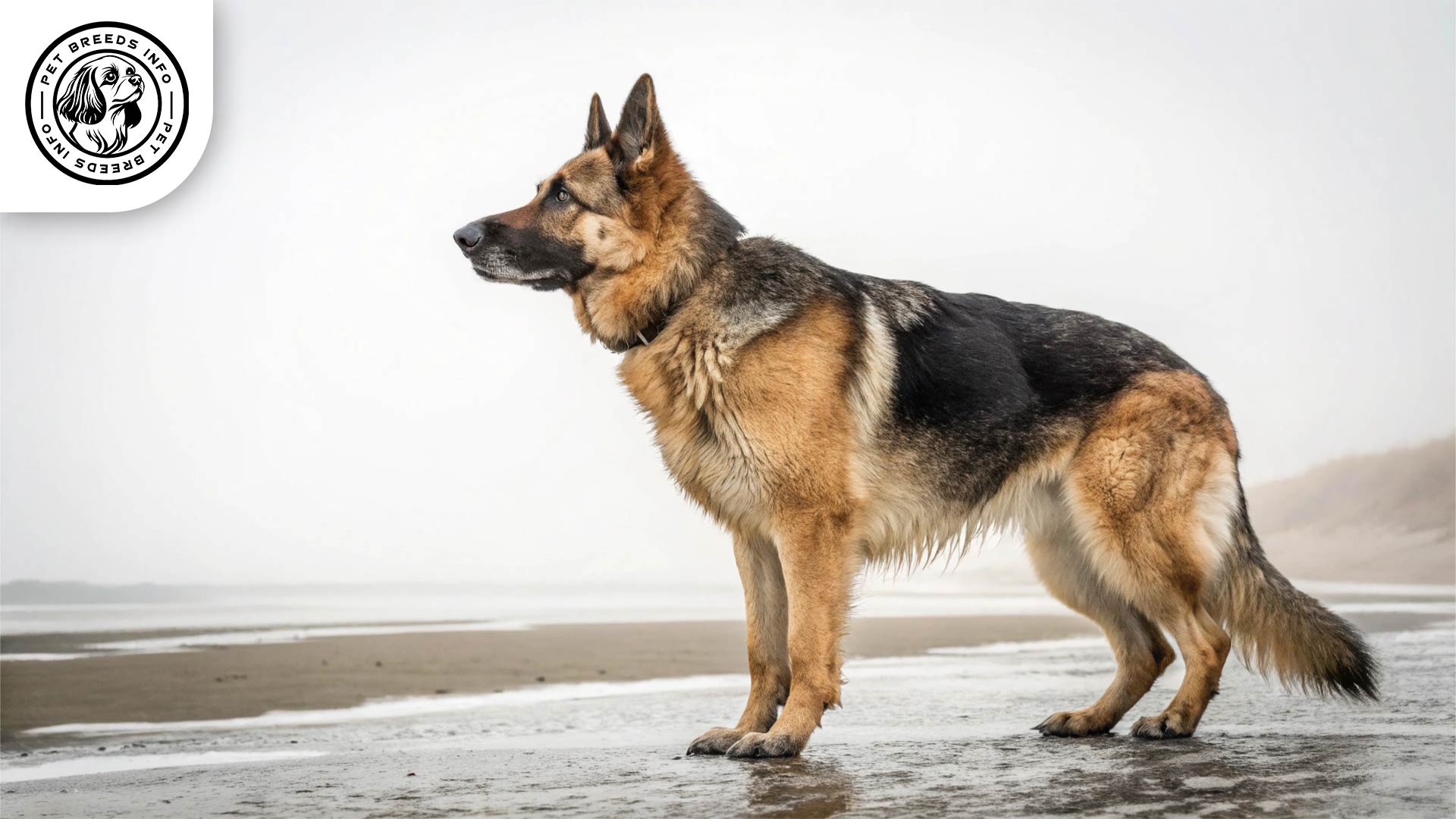Pointer Dog Breed: Size, Health, Price & Personality
General Introduction of the Breed
The Pointer, also known simply as the English Pointer, is a breed of hunting dog developed primarily in England. Originally bred in the 17th century, this dog was used to assist hunters in finding and pointing out game birds. Its history is believed to be linked to various breeds, including the Greyhound, Foxhound, and Old Spanish Pointer.
Table of Contents
| Color | Liver, black, lemon, or orange, often seen in solid, patched, or speckled patterns. |
| Weight | Males: 55-75 lbs (25-34 kg); Females: 45-65 lbs (20-29 kg) |
| Lifespan | 12-15 years |
| Diet | High-quality dry, wet, or raw food, protein-rich meals, 2-3 cups per day (divided into two meals) |
| Care | High exercise needs (long walks, runs, play sessions), occasional brushing, sensitive to cold, regular nail trimming, ear cleaning, and dental care |
| Health | Prone to hip dysplasia, epilepsy, progressive retinal atrophy, and bloat. Routine vaccinations, parasite control, and annual veterinary checkups are essential. |
| Nature | Intelligent, energetic, affectionate, sociable, friendly, playful, strong prey drive, sensitive to environmental changes, thrives in stable environments |
| Price | $800 – $3,000 (from reputable breeders); lower cost for adoption |
Physical Characteristics
Pointers are medium-to-large sized dogs. Males typically stand between 25 to 28 inches tall and weigh between 55 to 75 pounds, while females are slightly smaller, standing 23 to 26 inches tall and weighing 45 to 65 pounds.
The breed has a short, smooth coat that comes in various color combinations, including liver, black, lemon, or orange, often seen in solid, patched, or speckled patterns.
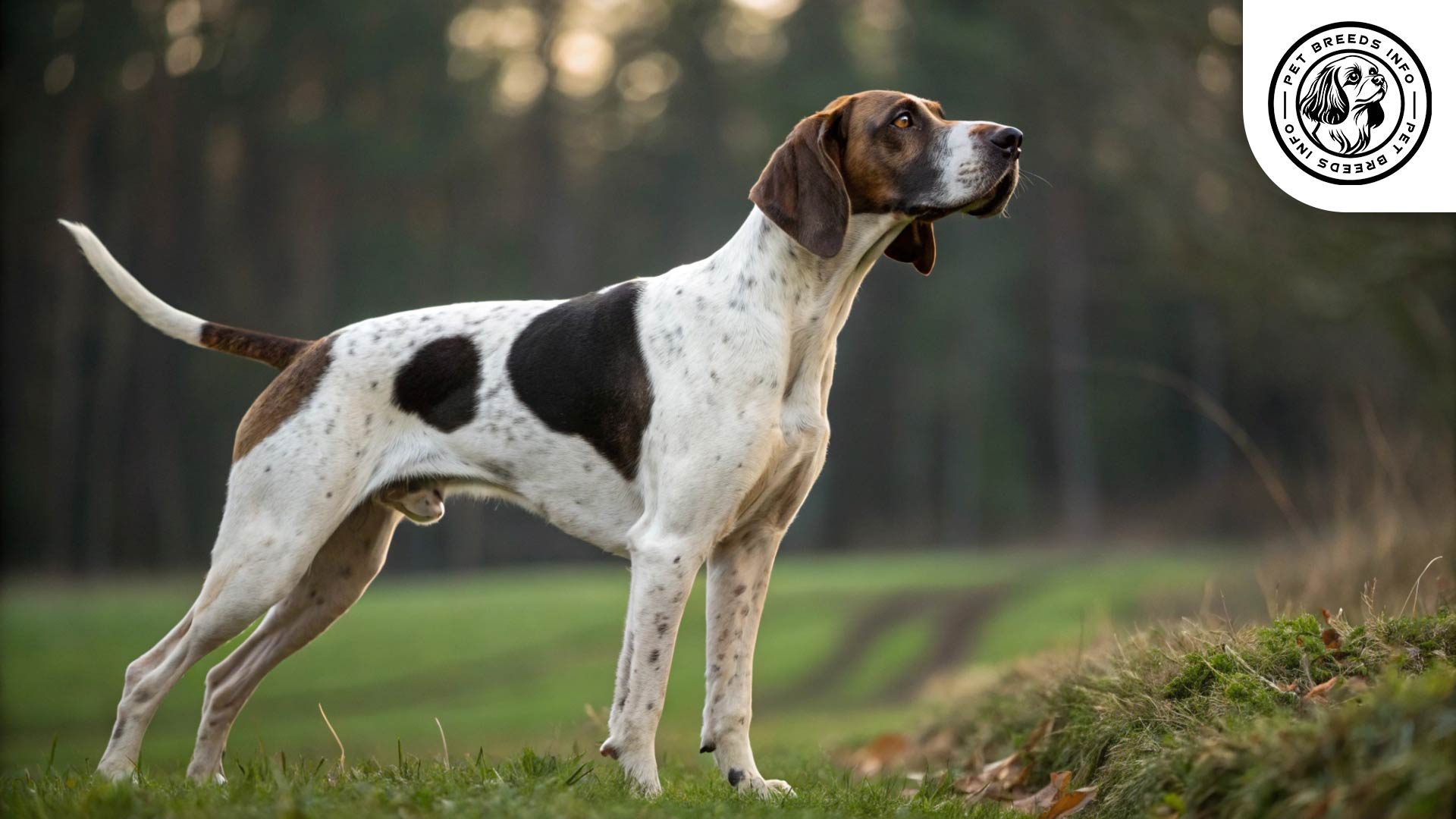
Pointers have round, expressive eyes that vary in color from brown to hazel. Their ears are medium-sized, hanging close to the head, and their tail is straight and tapered, often carried level with the body.
A distinctive physical feature is their lean, muscular build, which contributes to their athletic performance.
Read More: Puli Dog
Personality and Temperament
Pointers are intelligent dogs that learn quickly and respond well to training. They are energetic and require plenty of physical activity to stay happy and healthy.
They are affectionate and develop strong bonds with their owners. They are generally sociable and friendly, making them excellent companions for families with children.
Their hunting instincts make them highly alert, and they have a strong prey drive. They are playful and enjoy interactive activities.
Pointers can be sensitive to environmental changes and thrive in stable, loving environments.
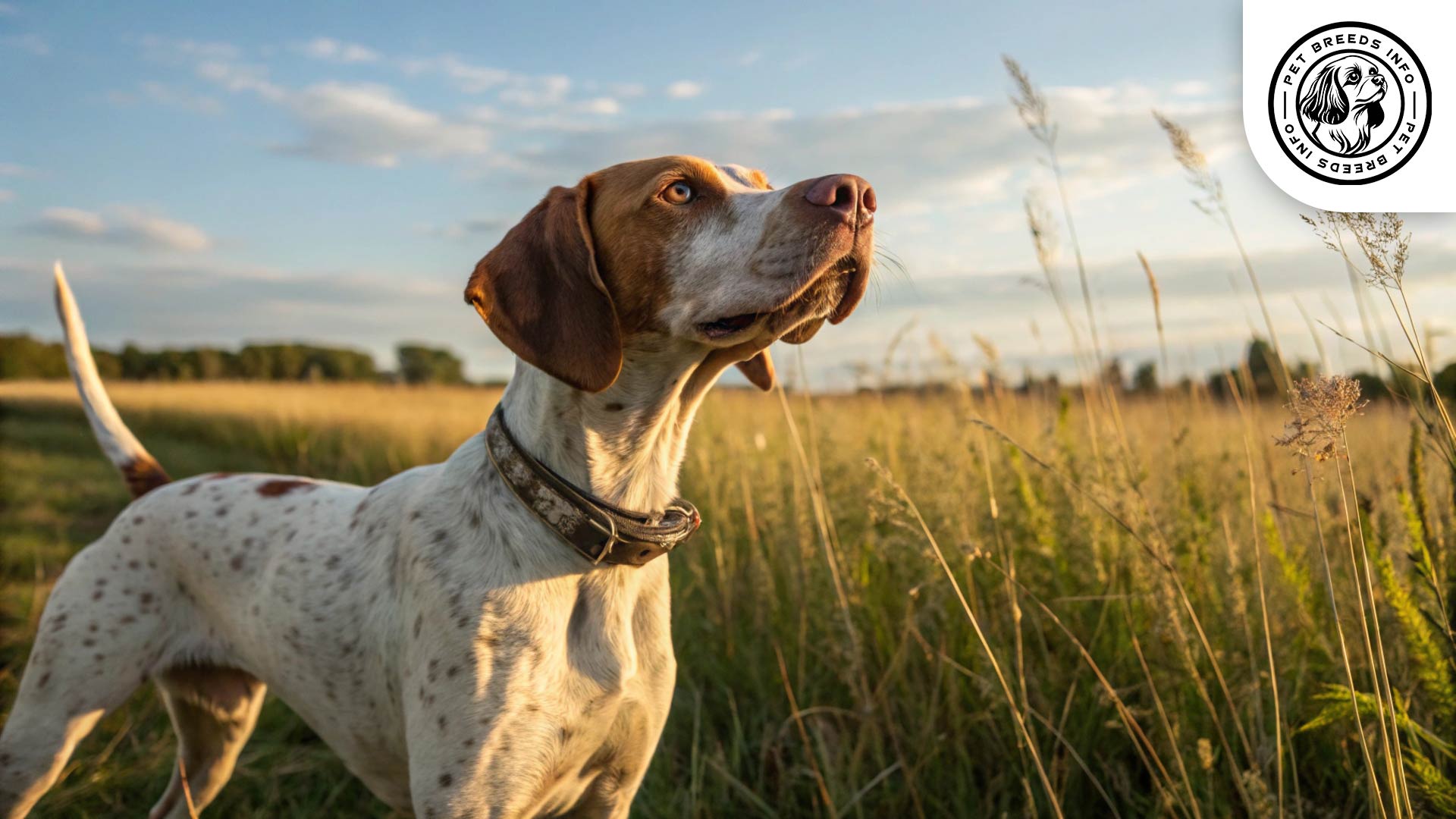
Care and Maintenance Requirements
This breed requires a high level of daily exercise, including long walks, runs, and play sessions. A house with a yard is ideal, although they can adapt to apartment living with sufficient outdoor activity.
The short coat is low-maintenance, requiring occasional brushing to remove loose hair. They shed moderately throughout the year.
Pointers are sensitive to extreme cold, so care should be taken in winter months. They tolerate warm temperatures fairly well.
Regular hygiene practices, including nail trimming, ear cleaning, and dental care, are essential for their overall health.
Diet and Nutrition
A balanced diet of high-quality dry, wet, or raw food is recommended for this breed. Protein-rich meals support their active lifestyle.
Pointers typically do not have specific dietary restrictions, but care should be taken to avoid common allergens or foods that cause digestive issues.
Toxic foods such as chocolate, onions, grapes, and excessive fatty foods should be avoided.
The recommended portion size varies but is generally around 2 to 3 cups of food per day, divided into two meals.
Read More: Pumi Dog
Health and Common Medical Issues
Pointers are generally healthy dogs but may be prone to hereditary conditions such as hip dysplasia, epilepsy, and progressive retinal atrophy.
They are also sensitive to bloat, a potentially life-threatening condition, so meals should be spaced appropriately.
The average lifespan is between 12 to 15 years.
Routine vaccinations, parasite control, and annual veterinary checkups are essential for maintaining good health.

Training and Behavior Management
Pointers are intelligent and eager to please, making them relatively easy to train. However, they require patience and consistency in training due to their energetic and sometimes independent nature.
Early socialization and basic obedience training from puppyhood are recommended.
Positive reinforcement techniques, such as praise and treats, work best for this breed.
Interaction with Other Animals and Humans
Pointers are excellent family dogs and generally get along well with children due to their friendly and affectionate nature.
They can coexist peacefully with other pets, although their hunting instincts may make them chase smaller animals.
The breed suits both individuals and families, provided they can meet the dog’s exercise needs.
They are highly attached to their owners and do not do well if left alone for long periods.
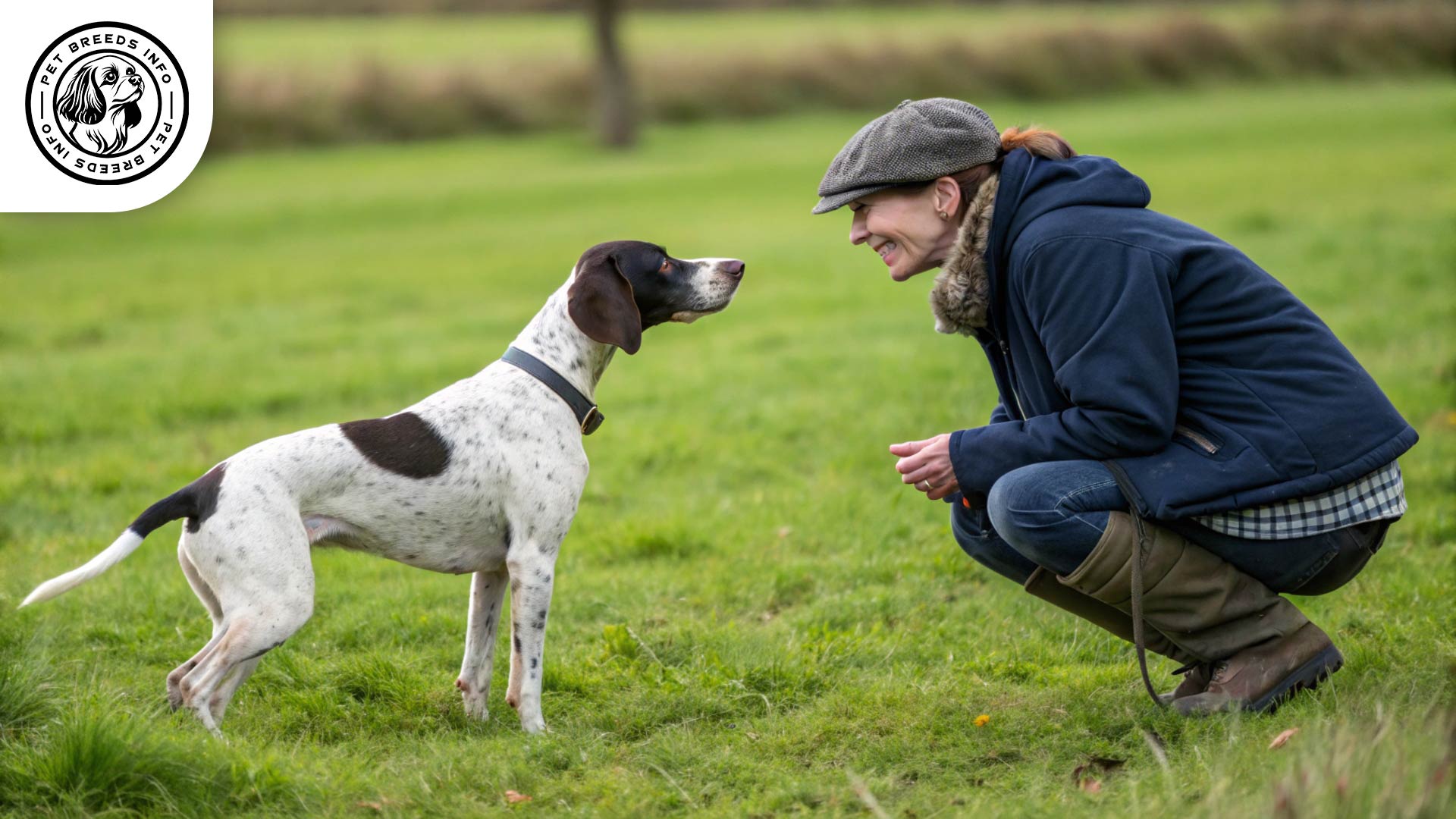
Price and Availability
The cost of purchasing a Pointer from a reputable breeder typically ranges from $800 to $3,000, depending on lineage, location, and breeder reputation.
Adoption is a great alternative, with many pointers available at shelters or rescue organizations at a lower cost.
When acquiring a Pointer, ensure the breeder follows ethical breeding practices and conducts necessary health screenings.
Read More: Pyrenean Mastiff
Conclusion and Final Thoughts
The Pointer is an excellent breed for active individuals and families who can provide plenty of exercise and mental stimulation.
They thrive in spacious environments and require an owner who is willing to dedicate time to training and physical activities.
Potential owners should consider their high energy levels, strong attachment to owners, and hunting instincts before deciding to adopt or purchase a Pointer.
FAQ
What is the ideal living environment for a Pointer?
Pointers thrive in spacious environments with a yard. They are highly energetic and require ample space for exercise. While they can adapt to apartment living, it’s essential to provide them with sufficient outdoor activities.
What are the common health issues that Pointers may face?
Pointers are prone to hereditary conditions like hip dysplasia, epilepsy, and progressive retinal atrophy. They are also sensitive to bloat, a potentially life-threatening condition.
How much exercise does a Pointer need?
Pointers require a high level of daily exercise, including long walks, runs, and play sessions. They are active dogs that need physical and mental stimulation.
Are Pointers good with children and other pets?
Yes, Pointers are excellent family dogs and generally get along well with children. They can also coexist peacefully with other pets, although their hunting instincts may cause them to chase smaller animals.
What type of diet is recommended for Pointers?
A balanced diet of high-quality dry, wet, or raw food is recommended. Protein-rich meals support their active lifestyle. The recommended portion size is generally around 2 to 3 cups of food per day, divided into two meals.
